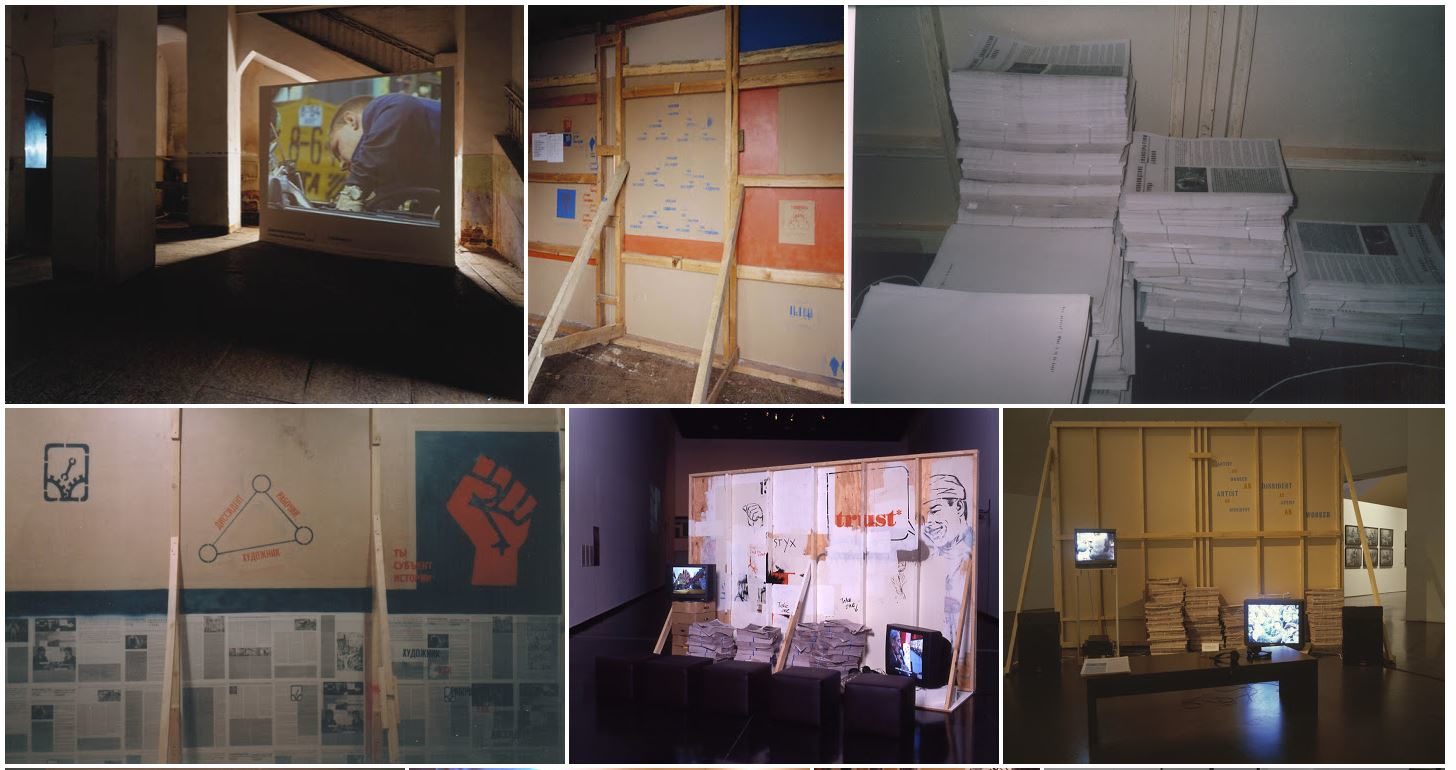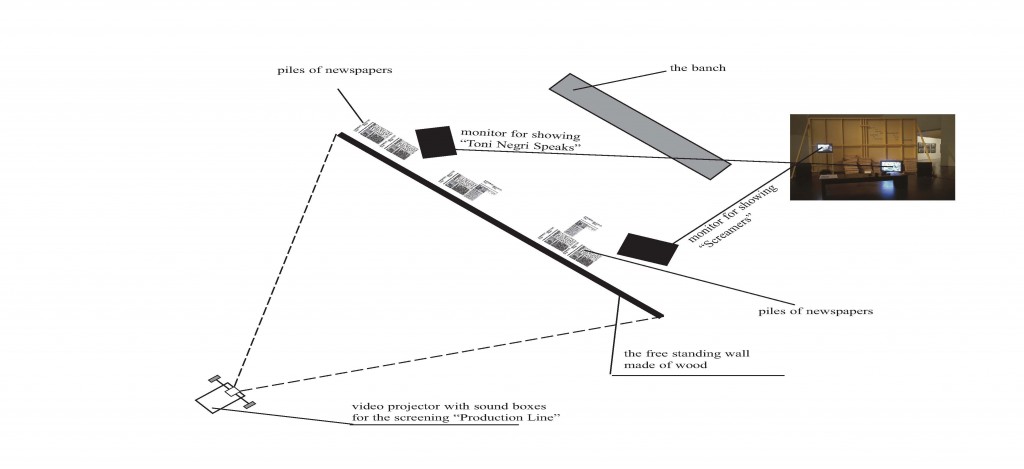
see here the documentation of the installation at different shows
Authors’ comments on the project “Negation of Negation”
The revolution is over, but in the end of revolution what wins is a completely reactionary mode of living. And the nostalgia of the poet is really the attempt to reconstruct in this passage, this reactionary desert in which humans have been thrown, to reconstruct those other values, pushing them forward.
Toni Negri
Development of history occurs through negation of historical experience that – in its turn – negated then one preceding. My work deals with such basic notions as a “Worker” and a “Dissident”. These terms seem to lack any actual meaning in contemporary context. Yet, as history teaches us, certain phenomena from the past tend to return and can be actualise b the efforts of someone who feels urgency to execute this act.
What does it mean today to be a worker and to be a dissident?
What connection could be established between these two notions?
What is an artist’s role in historical development?
In the film “Production Line” is important for me to reflect the most basic labour activity on the production line and make the viewers to see the workers in the exhibition space again, after a long break. Addressing the proletariat is also important on a symbolic level. The very definition of physical labour is forced out to the periphery in the society of financial speculations and services. Yet physical labour still exists – it never vanished in post-capitalism society. At the same time it was necessary to place workers’ images in a new context and thus give them a new interpretation.
In the installation the projection of this film on free standing wall in the space is confronted by two more videos that are shown behind these screen-wall: one of them is the “Screaming” (2003) – this video was made at the demonstration organised by European Social Forum in Paris in November 2003.
John Holloway wrote in his book: “Change the world without taking power”
“In the beginning is the scream. We scream. When we write or when we read, it is easy to forget that the beginning is not the word, but the scream. Faced with the mutilation of human lives by capitalism, a scream of sadness, a scream of horror, a scream of anger, a scream of refusal: NO.”
The films shows different way of almost all existing traditional demonstration’s chanting slogans in Europe. Due to the cut of the film this activity in film is shown in condenssed, almost comic form mixing moment of pure exaltation and concentration. In the construction of the installation this activity sympolise the role of multitude with its features based on affects, linguistic production and virtuosity in action. In the next film that is shown close to the “Screaming” we see how Toni Negri speaks on the topic “Multitude or Working Class?” It was recorded at Paris La Villette also in 2003 during 2nd European Social Forum. His speech was a part of the debates run between Negri and Alex Calinicos. The film is focused just on the speech of Negri and a crowd that very emotionally followed it. In the installation Negri plays the role of intellectual-dissident who is trying to interpretate the transformation of labour and advocate his concept of multitude.
Thus the whole installation (with a supplement of take away newspaper Emancipation of/from Labour) invites viewer to participate in the debate on a changes of the class composition and her/his role in it. And three types of labour activity becomes connecting, negating each other in dialectical unity: a worker as a dissident, a dissident as an artist, an artist as a worker…










